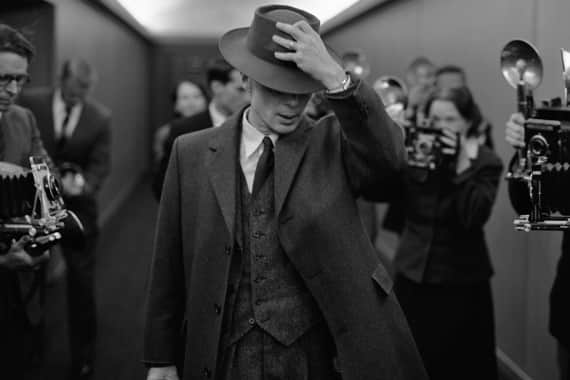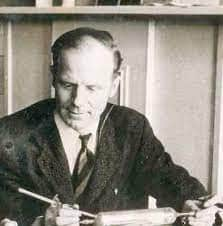Oscars 2024: Glasgow’s link to the creation of the atomic bomb as Oppenheimer wins big
and live on Freeview channel 276
Glasgow has an important connection to the historical significance of the story of the atomic bomb after Oppenheimer wins big at the Oscars.
Irish actor Cillian Murphy will take centre stage in the film but we want to focus on a certain Sir Samuel Curran who participated in the Manhattan Project to develop the atomic bomb and is recognised as being one of the great Scots of the 20th century.
Advertisement
Hide AdAdvertisement
Hide AdCurran’s father hailed from Kinghorn in Fife and although Samuel was born in Ballymena, it wouldn’t be long before his family moved to Scotland to support his father who worked as a foreman at the steelworks in Wishaw. It was there that Samuel Curran would attend secondary school where he became dux of Wishaw High School. He championed the importance of science and maths teachers throughout his life which he put down to the good fortune of having wonderful teachers whilst in secondary school.


He then moved on to the University of Glasgow where he gained first class honours in mathematics and natural philosophy (physics) which then led to a PhD at St John’s College, Cambridge, where he was to become an honorary fellow 30 years later. After the outbreak of the Second World War, Curran went to the Royal Aircraft Establishment at Farnborough where he met his future wife Joan Strothers who he married in 1940. They both worked on the development of long-range centimetre radar and the proximity fuse.
As war continued to rumble on, he was sent West to The University of California, Berkeley to work on the development of what was to become the atomic bomb with nuclear physicist Robert Oppenheimer being the principal leader of the project and often being referred to as the “father of the atomic bomb”. It was during this project that Curran would invent the Scintillation Counter which is an instrument used for measuring radioactive activity. Labour politician Tam Dalyell recalled Curran saying: “I didn’t agonise to the extent that Sir James Chadwick [isolator of the neutron] agonised over his part in making Hiroshima and Nagasaki possible. But I did wonder where the ultimate results of my work and that of my colleagues would lead.” He returned to Glasgow after the war and went back to the physics department at the University of Glasgow.


After a period of working at the Atomic Weapons Research Establishment at Aldermaston, he took up a position as Principal of the Royal College of Science and Technology which he helped lead to full university status as the University of Strathclyde in 1964. He had helped create the first new university in Scotland for 381 years and was given the honour of being appointed their first Principal and Vice-Chancellor.
The Andersonian Library at the University of Strathclyde is in the Curran Building which was named in Sir Samuel Curran’s honour after his retirement from the university in 1980.
Comment Guidelines
National World encourages reader discussion on our stories. User feedback, insights and back-and-forth exchanges add a rich layer of context to reporting. Please review our Community Guidelines before commenting.
